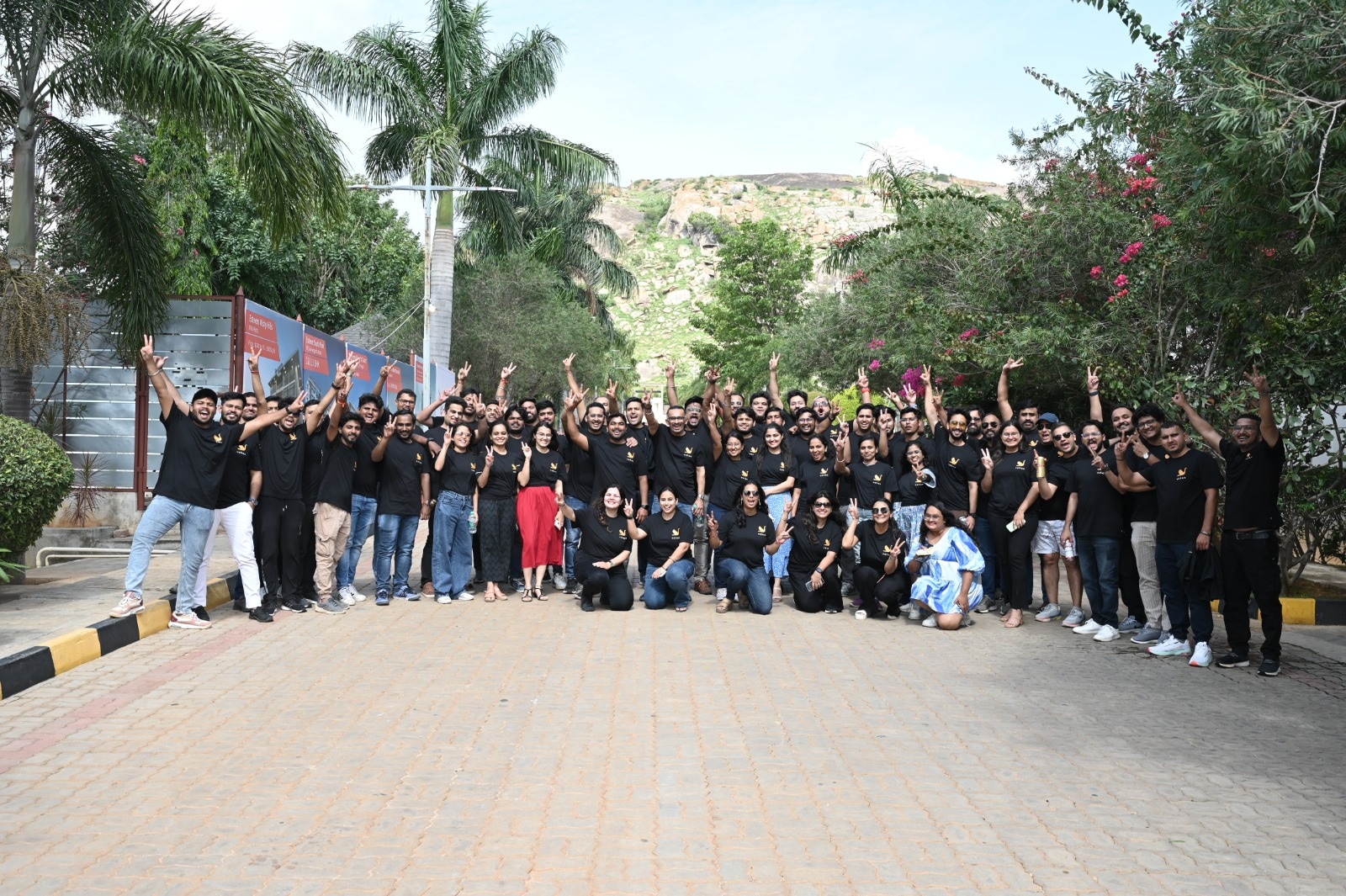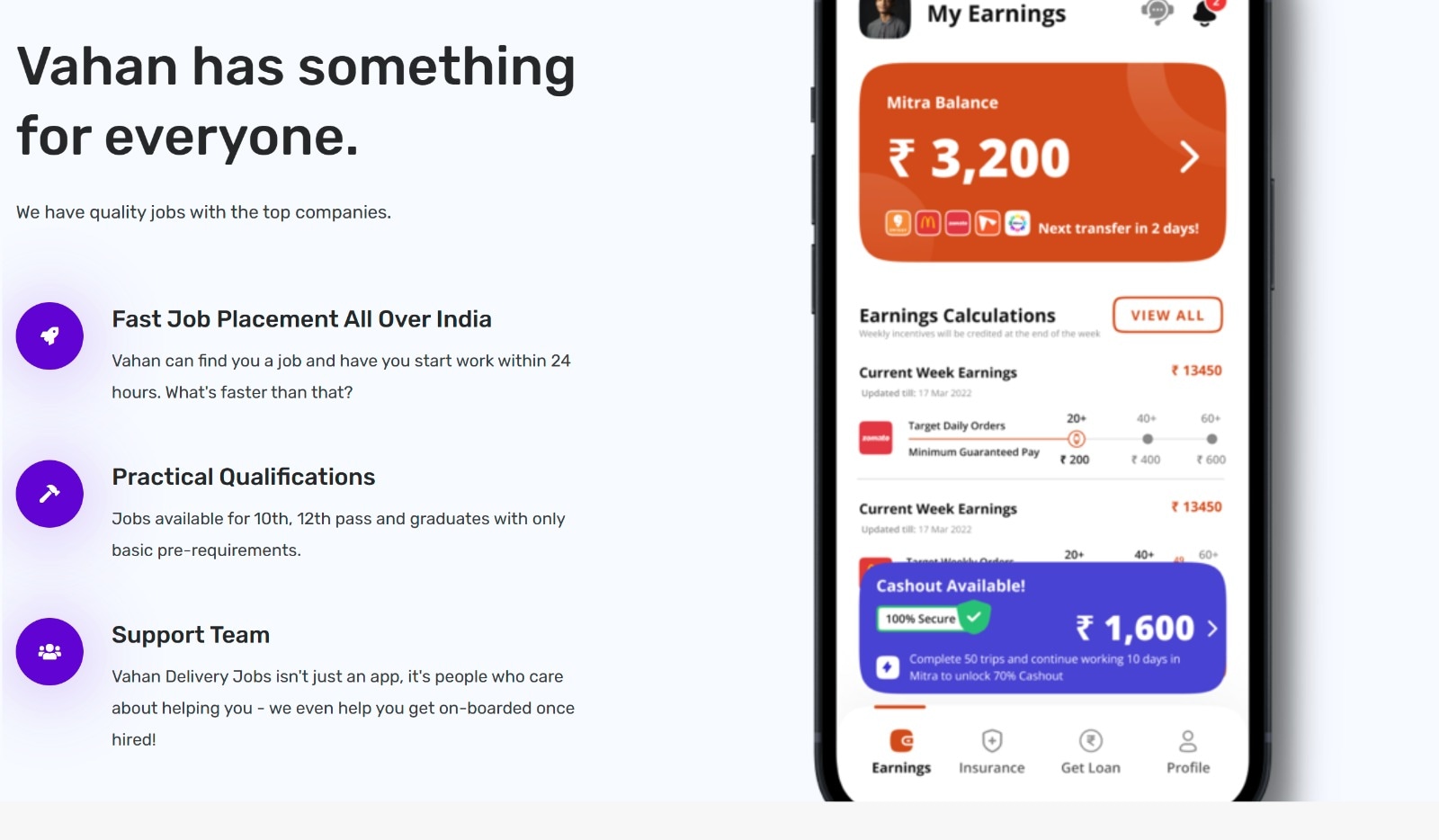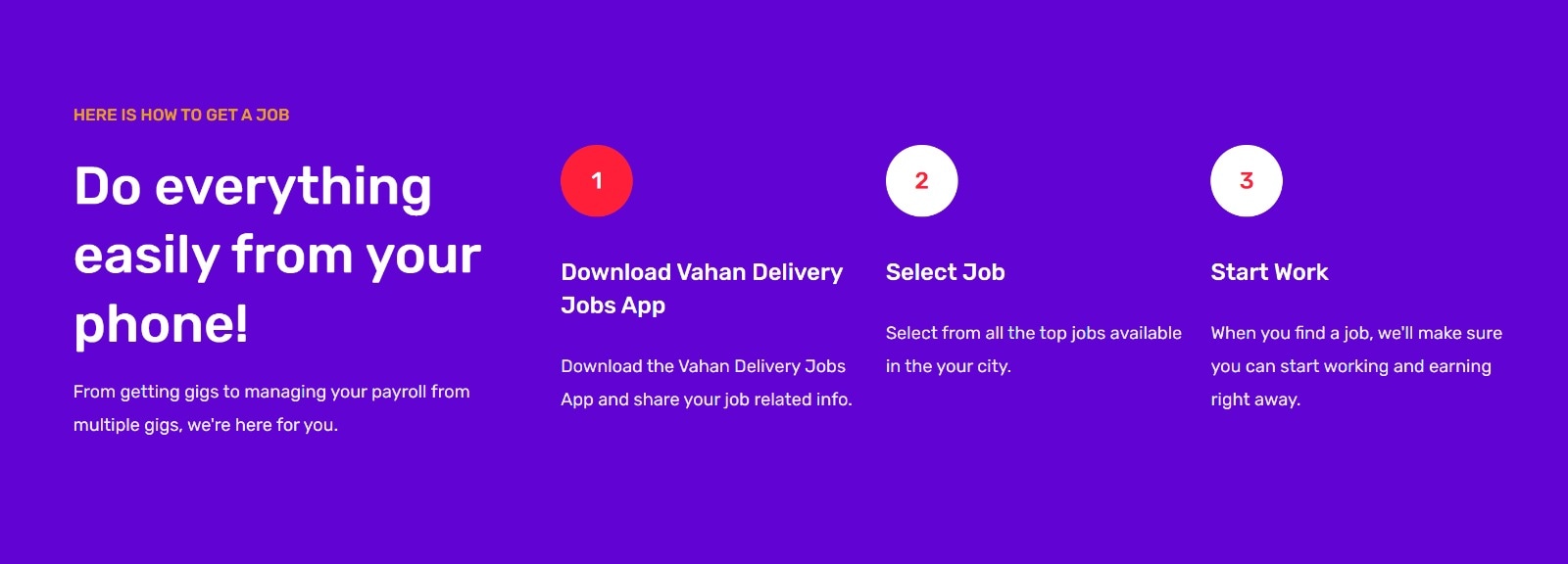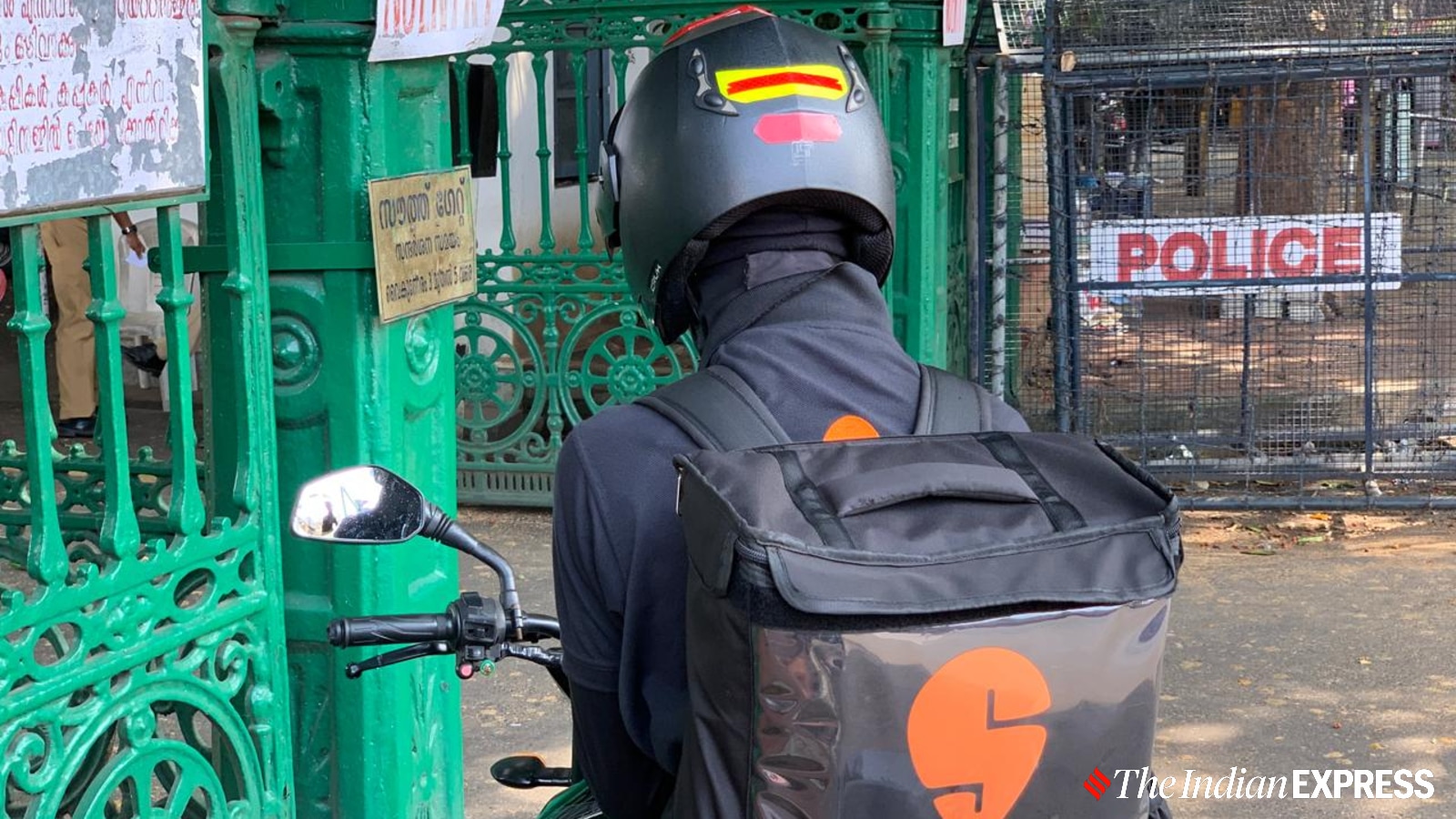Gig workers are the backbone of India’s booming e-commerce and quick commerce sectors. As the demand for gig workers skyrockets, Vahan.ai, a Bengaluru-based startup, is using AI to help blue-collar workers find jobs, making it one of the country’s largest recruitment platforms.
 Madhav Krishna, CEO and founder at Vahan.ai. (Image credit: Vahan.ai)
Madhav Krishna, CEO and founder at Vahan.ai. (Image credit: Vahan.ai)
Founded in 2016 by Madhav Krishna, Vahan.ai helps agencies discover jobs, match candidates, and hire them for online platforms. It’s all done through an AI recruiter that speeds up the hiring process and reduces labour shortages for businesses in the service and semi-skilled sector, especially during seasonal peaks.
 Krishna says its AI recruiter has tripled the productivity of recruiters, enabling them to recruit three people a day instead of one. (Image credit: Vahan.ai)
Krishna says its AI recruiter has tripled the productivity of recruiters, enabling them to recruit three people a day instead of one. (Image credit: Vahan.ai)
“E-commerce was already big at the time, and the gig economy was about to take off. However, we found that the recruitment process was broken, as most blue-collar hiring in India happened through traditional recruitment agencies,” recalls Krishna, who holds a master’s degree in AI from Columbia University. It was around this time that he decided to return to India and founded Vahan.ai. Looking back, Krishna believes his observations were accurate: customers are now willing to pay for convenience, the gig economy is real, and this space is creating real jobs for people in a country where job creation remains a major challenge.
“Our first product, in fact, was a chatbot on WhatsApp, and it was more of a skilling tool. Back then, we used to teach people English to help them become more employable. But over time, as we tried to find a product–market fit, we realised that finding a job is a much deeper pain point. It’s a painkiller, whereas skilling is more like a vitamin. In 2019, we made the decision to shift our focus to the job space and were accepted into Y Combinator, with Khosla Ventures backing them,” he told indianexpress.com in an interview.
What Krishna’s company is doing differently is building an AI recruiter, which he says helps recruitment agencies speed up the hiring process for gig workers—automating much of it through a chatbot, with minimal human intervention. Vahan.ai recruits around 40,000 people each month and has placed over 10 lakh individuals in jobs, primarily across the top 10–15 cities in India.
“Our AI recruiter is able to help these agencies triple their productivity. So if a recruiter was previously recruiting one person a day with our AI recruiter, they are able to do three a day now,” he said.
Krishna likes to call his platform a “marketplace”, where he gets demand from online platforms like Zomato, Swiggy, Flipkart and Zepto and then supply is provided by recruitment agencies. The platform allows agencies to view job listings, match candidates, and upload valid documents for validation.
Story continues below this ad
 The business model involves Krishna’s company getting paid by employers for each recruitment made through the platform.
The business model involves Krishna’s company getting paid by employers for each recruitment made through the platform.
“It could be a solo entrepreneur sitting in Darbhanga, Bihar, or Rewa, Madhya Pradesh, with a team of seven recruiters. They access an app that gives them a view into the types of jobs available in their localities. Through the platform, they can match candidates with these jobs and upload candidate details—such as name, phone number, and documentation. Our platform automatically validates the documents, and finally, they use our AI recruiter to have a conversation with the candidates,” he explains, describing how the platform works.
The AI recruiter uses OpenAI’s GPT-4 and GPT-4o models to generate responses for users. Krishna’s AI recruiter captures millions of phone calls each month to fine-tune its AI models. Currently, the AI recruiter can hold conversations in both Hindi and English, with plans to expand support to at least eight other major Indian languages this year. The AI chatbot is relatively new, having been deployed for about nine months, and already handles close to 20,000 calls a day.
“We spent a lot of time trying to make the voice sound very desi and not robotic,” Krishna said, adding that while the AI Recruiter can currently handle basic tasks like accepting and verifying documents, this is still a very early version of what’s possible. “There’s a lot more we want to do. The great thing about AI is that the technology is very capable—even out of the box—at handling various languages and the variations,” he added.
“We have a rigorous set of evaluations that we conduct internally. Some of these are automated, while others are manual—where in-house team members interact with each new version of the bot to assess how it sounds, its tonality, how well it can carry a conversation, and what kinds of mistakes it makes,” he explained.
Story continues below this ad
The company uses multiple language models, including OpenAI’s GPT-3, to automatically evaluate the AI recruiter’s performance. According to Krishna, the AI recruiter has already shown a 3x improvement in recruitment activity, with the potential to scale up to 20x in the future.
Krishna and his team work closely with OpenAI to ensure that these models can be deployed at scale in India. Citing an example, he explained that even a simple word like “yes” can be said in 20 different ways across the country. “When our bot asks people, ‘Are you interested in this job?’ some might say ‘haan,’ and sometimes the bot gets confused. There are many such variations. In Bengaluru, the way you pronounce a word can be different, and a lot depends on the influence of your mother tongue. The bot needs to understand these nuances. That’s really the challenge we are working on with OpenAI,” he said.
 Vahan.ai has always been an AI-first company, starting with a chatbot on WhatsApp for skilling people.
Vahan.ai has always been an AI-first company, starting with a chatbot on WhatsApp for skilling people.
“OpenAI helps bring our data and expertise with their platform, and together we fine-tune and modify their models—even at a deeper level, during the pre-training phase—to handle these complexities and nuances. So it’s a close collaboration from that perspective. Of course, the deep understanding of India is what we primarily bring to the table,” he added.
Krishna’s company gets a cut from employers for each successful recruitment made through the platform—that’s the core of its business model. In the future, the company plans to expand its AI-driven solutions to other industries and regions, starting with manufacturers and cab drivers. “We are working with large manufacturers—I can’t name them yet—but we have already started hiring for them. We are also recruiting cab drivers for cab companies. Our goal is to replicate this model across other industries as well,” he said.
Story continues below this ad
Krishna emphasised that AI is meant to aid human capabilities rather than replace them — especially in a country like India. “I think it needs to be a blend in a country like India, particularly because the audience we work with still operates in a very human-first manner,” he said. He added that in India, people don’t typically go online to look for jobs—they often rely on a bhaiya, mama, or chacha to help them find work. “That’s why we built what we built. We connect agencies with these job opportunities and use our technology to make those agencies more efficient. AI is a force multiplier, not a replacement. I don’t think it will ever replace people in a country as massive and diverse as India—especially for these types of use cases,” he said, when asked whether AI could take over human jobs.






Average Rating